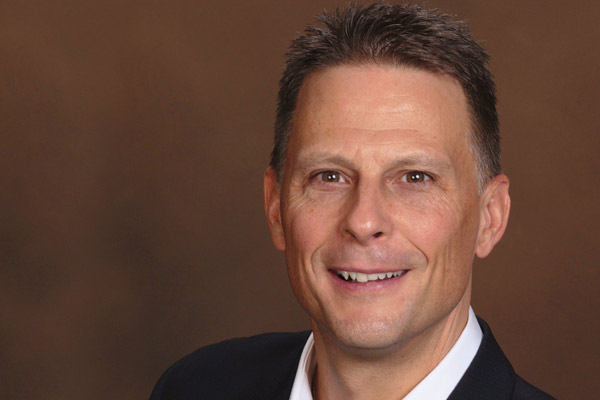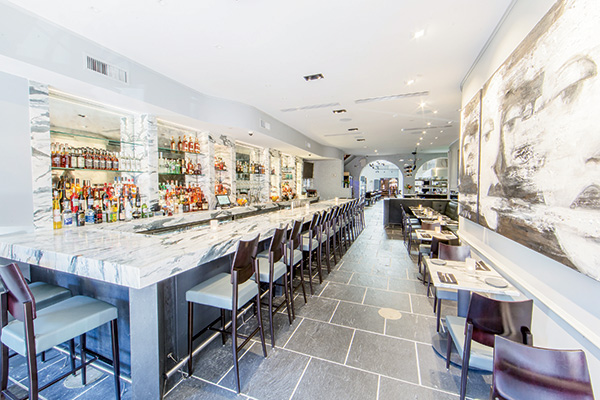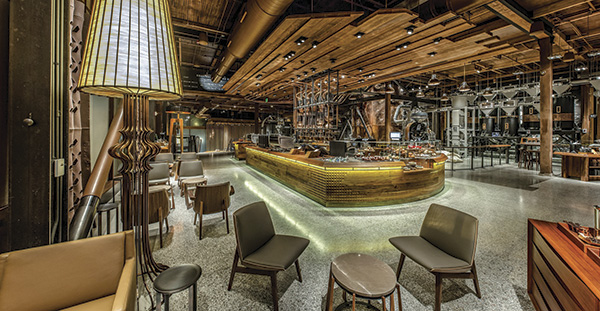A long-time franchising veteran of foodservice and non-foodservice concepts, as well as a former independent franchise consultant, Jeff Sturgis signed on with McAlister's Deli as chief development officer last September.
It's a new position for the award-winning fast-casual brand and a key part of its plan to ramp up growth through franchising. Part of that plan includes taking the McAlister's brand, long known throughout the South and Southeast for its sandwiches, giant spuds, soups and signature Famous Sweet Tea, into new geographic territory and nontraditional locations. Sturgis is now leading the charge.
rd+d: As the first to hold the new chief development officer title at McAlister's, what are you spending most of your time on?
JS: My role covers all areas of development, so it's franchise sales, it's real estate, and it's store design and construction. On the sales side, I'm focusing primarily on bringing experienced, multi-unit developers into the system. We want people who have some background in the business and who can commit to developing at least three restaurants over a designated period of time in a defined geography.
rd+d: There's a lot of competition for those types of franchisees. How are you attracting them to McAlister's?
JS: Our strategy is just to present the brand and our concept to these groups and help them to understand who we are. Despite the fact that we've been around for 25 years and have 324 restaurants, we're not necessarily widely known and we don't fit into a neat box: We're not a burger place, we're not a taco place, we're not a salad place. So we're working to get the word out about who and what we are to folks looking to expand their portfolio. We know we have a good brand that provides a good investment for our franchise partners, but it's definitely very competitive. My top priority is figuring out how to stay in front of the kind of audience that we want to engage to become part of our system.
rd+d: What growth targets are you working toward?
JS: We expect to open roughly 20 new restaurants this year, which will be an increase from the openings in 2013, when we did 10 or 12 new units. Essentially, our goal going forward is to get to a 10 percent net new unit opening rate on an annualized basis. If we do that, we could hit 500 locations within the next 4 years. And while we're growing in existing markets, we're also expanding our footprint. Right now, most of our restaurants fall between Dallas and Raleigh. But we've already started going beyond, opening units in West Texas and Colorado, and pushing up into the upper Midwest and Northeast, as well as down into Florida. We're confident that the brand will translate well into almost any U.S. market, but we're going to do it intelligently and not just throw one store into a market and see what happens.
We're also establishing a presence in nontraditional locations. We're in a few airports and college campuses, where we do very well. We have relationships with some of the bigger third-party foodservice contractors, so we'll continue to expand into nontraditional spaces as it makes sense.
rd+d: Are there specific events or initiatives that have propelled McAlister's recent growth drive?
JS: Almost four years ago, our then-new CEO and President Frank Paci embarked on a mission to improve unit-level economics and enhance the guest experience, to get back to the core fundamentals of what made McAlister's successful for its first 20 or 21 years. What we've seen as a result of his efforts and the efforts of the management team, most of whom also joined the company in the past 3 to 4 years, is 20 percent top-line growth in our average system sales. We're now at 14 quarters of same-store sales increases year-over-year. We continue to drive more revenue for the restaurants and most of that is coming from traffic, not price. The franchisees are happy because more people are eating in the restaurants and when the franchisees are happy the restaurants perform better, which encourages them to grow, which causes outsiders to take a look at the brand. So the focus on unit-level economics and making sure that our franchisees are successful has been critical.
rd+d: McAlister's recently unveiled a new design prototype. What impact has that had on unit economics?
JS: Pretty minimal so far because, while all new stores have the new look, we only have a few remodeled stores. Rather, the increases we're seeing have more to do with a focus on food quality, operations and performance in the restaurants, and it's all been in spite of the fact that we have some older restaurants and a few different designs out there. It will be interesting to see the impact once the new design does get out more broadly.
We're excited about the new design and want to make sure our restaurants are fresh and relevant for today, but we're also sharply focused on making sure that the cost to develop a restaurant is in line with sales, striving for a 2:1 ratio. It's easy to get carried away with restaurant design and put all kinds of bells and whistles into a restaurant, but if that doesn't translate to sales it really doesn't have much value.
rd+d: What's the biggest obstacle to growth right now?
JS: Competition for great sites. We're primarily after end-caps around 3,500 square feet and we're far from the only brand looking for those spaces. Real estate's always a challenge — both finding the sites and making sure you're locating your restaurants properly so that you can be in the right place, in the right part of the market, to bring your customers in. We're in the process of switching to a new real estate modeling tool to help us do a better, more data-driven job with that.
rd+d: You're new to McAlister's but you've been at the franchising game for many years. What have you learned are keys to doing it right?
JS: The best franchise companies are those that have a never-ending focus on franchisee success, however that's defined in their system. It's a cultural thing that a franchisor either has or doesn't have. If you can't offer franchisees a good value proposition from an investment standpoint and from a lifestyle standpoint, then you're going to have a hard time sustaining any long-term growth.
A lot of franchisors paint a picture of what the future could be based on hopes and dreams, but sustainable success is only obtainable through actually providing those franchisees long-term success. That's what we're focused on. It's all about franchisee success, satisfaction and return on investment. Franchisors who don't understand
that's what their business is ultimately have trouble.
rd+d: Great food for thought. On that note, any favorite McAlister's menu items?
JS: The pot roast sandwich. That's pretty much what I get every time. It's amazing.




